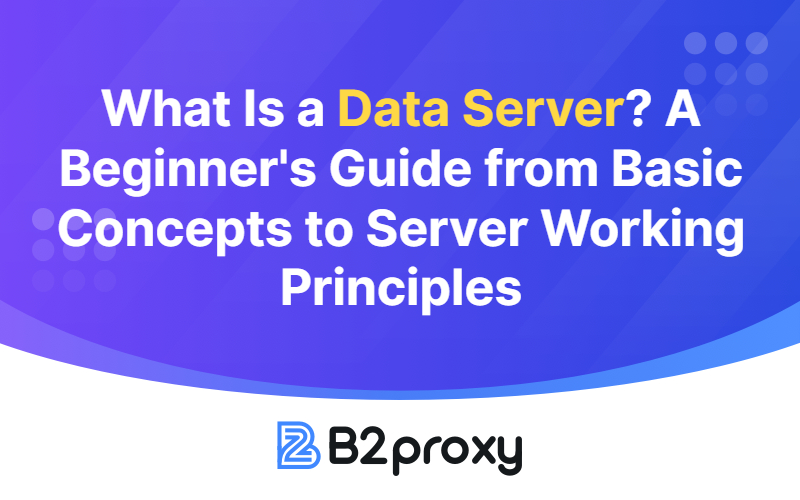What are the types of proxy IPs?
 March 27.2025
March 27.2025

<p style="line-height: 2em;"><span style="text-wrap: nowrap;">Different types of proxy IPs have their own characteristics and can meet various needs from basic network anonymization to enterprise data collection. In this article, we will systematically sort out the current mainstream proxy IP classification system to help readers establish a comprehensive cognitive framework.</span></p><p style="line-height: 2em;"><span style="text-wrap: nowrap;"><br/></span></p><p style="line-height: 2em;"><span style="text-wrap: nowrap;">Basic Classification and Technical Characteristics</span></p><p style="line-height: 2em;"><span style="text-wrap: nowrap;"><br/></span></p><p style="line-height: 2em;"><span style="text-wrap: nowrap;">According to the protocol type, proxy IP mainly presents three technical forms: HTTP proxy as the most traditional solution, focusing on web browsing scenarios, and able to parse and modify HTTP request header information; SOCKS proxy shows stronger protocol compatibility, supporting TCP/UDP full protocol stack transmission, especially suitable for games, videos and other real-time applications; SSL/TLS proxy adds an encryption layer over the basic protocol, which is especially suitable for games, videos and other real-time applications; SSL/TLS proxy adds an encryption layer over the basic protocol, which is especially suitable for games, videos and other real-time applications. SSL/TLS proxy adds an encryption layer on top of the basic protocol to provide security for sensitive operations such as financial transactions.</span></p><p style="line-height: 2em;"><span style="text-wrap: nowrap;"><br/></span></p><p style="line-height: 2em;"><span style="text-wrap: nowrap;">From the perspective of IP source, proxy services can be divided into three categories: Residential proxy, data center proxy and mobile proxy. Residential proxies use real home broadband IPs, which have the highest reliability and lowest blocking rate. Data center proxies rely on professional server room resources to provide stable and high-performance connections. Mobile proxies use cellular network IP, which can perfectly simulate the access behavior of mobile devices. These three IP sources form the basis of the current proxy market supply system.</span></p><p style="line-height: 2em;"><span style="text-wrap: nowrap;"><br/></span></p><p style="line-height: 2em;"><span style="text-wrap: nowrap;">Special Purpose Proxy Solutions</span></p><p style="line-height: 2em;"><span style="text-wrap: nowrap;"><br/></span></p><p style="line-height: 2em;"><span style="text-wrap: nowrap;">In addition to the basic classification, the industry has developed a variety of specialized proxy solutions. Reverse proxies are mainly deployed on the server side for load balancing and website acceleration, and well-known CDN services are typical applications. Transparent proxies are usually used by enterprises or schools for network monitoring and content filtering, and are characterized by not hiding the existence of the proxy from users. Highly anonymous proxies are the preferred choice for privacy protection, not revealing any traces of proxy usage at all.</span></p><p style="line-height: 2em;"><span style="text-wrap: nowrap;"><br/></span></p><p style="line-height: 2em;"><span style="text-wrap: nowrap;">Emerging intelligent proxy technologies are breaking down traditional categorization boundaries, with AI-driven dynamic proxy systems automatically selecting the most optimal IP type and geographic location based on access goals. Blockchain proxy networks provide decentralized anonymity through distributed nodes. These innovations are redefining the boundaries of what is possible with proxy IP.</span></p><p style="line-height: 2em;"><span style="text-wrap: nowrap;"><br/></span></p><p style="line-height: 2em;"><span style="text-wrap: nowrap;">Industry Applications and Selection Guide</span></p><p style="line-height: 2em;"><span style="text-wrap: nowrap;"><br/></span></p><p style="line-height: 2em;"><span style="text-wrap: nowrap;">The need for proxy IP varies significantly by industry. The e-commerce industry often requires large-scale Residential proxies to monitor prices and ensure the authenticity of data collection. The digital marketing industry favors mobile proxies for social media account management and advertising effectiveness testing. Cybersecurity experts prefer clean data center proxies for vulnerability scanning and penetration testing.</span></p><p style="line-height: 2em;"><span style="text-wrap: nowrap;"><br/></span></p><p style="line-height: 2em;"><span style="text-wrap: nowrap;">There are five key dimensions to consider when choosing a proxy type: the anti-crawl strength of the target site, the size of the IP count required, geographic coverage requirements, budgetary constraints, and the capabilities of the technical team. It has been proven that a mix of proxy types often yields the best results.</span></p><p style="line-height: 2em;"><span style="text-wrap: nowrap;"><br/></span></p><p style="line-height: 2em;"><span style="text-wrap: nowrap;">With the development of 5G and Internet of Things (IoT) technologies, the types of proxy IP will become more diversified. New forms such as edge computing proxies and IoT device proxies are emerging. Understanding the current proxy IP type system not only helps to solve the current network needs, but also prepares for future technological changes. In this era of interconnectivity, choosing the right type of proxy is to pave the digital highway for business development.</span></p><p><br/></p>
You might also enjoy

What Is a Dynamic Residential IP? A Detailed Guide to Cross-Border E-commerce Account Isolation and Risk Control Solutions
Breaks down dynamic residential IPs, highlighting their role in account isolation, risk control, and building secure cross-border e-commerce systems.
February 27.2026
How to Access TorrentGalaxy Stably? 2026 Latest Working Links and Proxy Solutions Explained
A practical 2026 guide to accessing TorrentGalaxy reliably, explaining domain shifts, ISP restrictions, proxy methods, and security considerations.
February 27.2026
What Is a Data Server? A Beginner's Guide from Basic Concepts to Server Working Principles
Beginner's guide to data servers, covering core concepts, working principles, architecture, stability factors, and future cloud-driven trends.
February 26.2026







